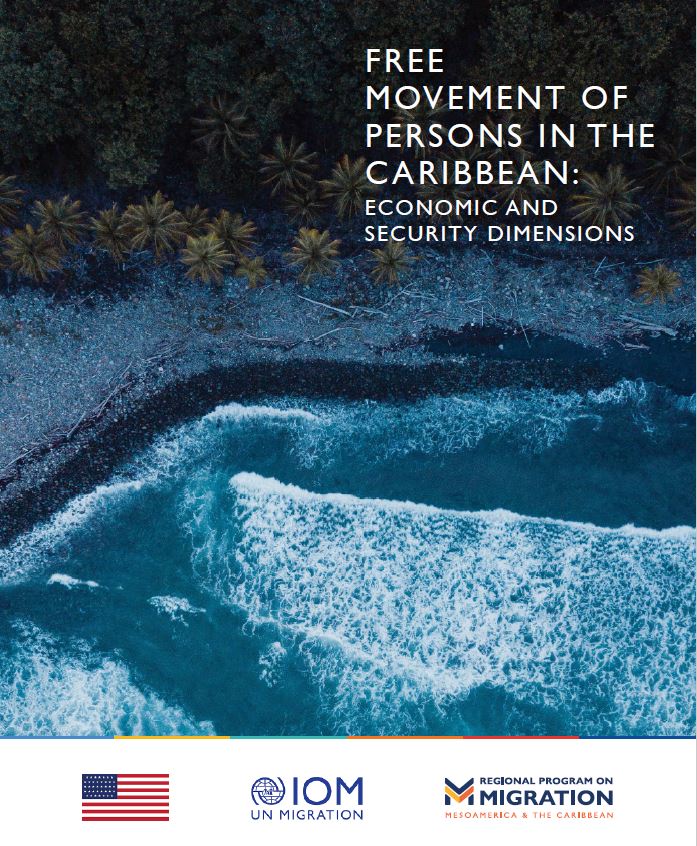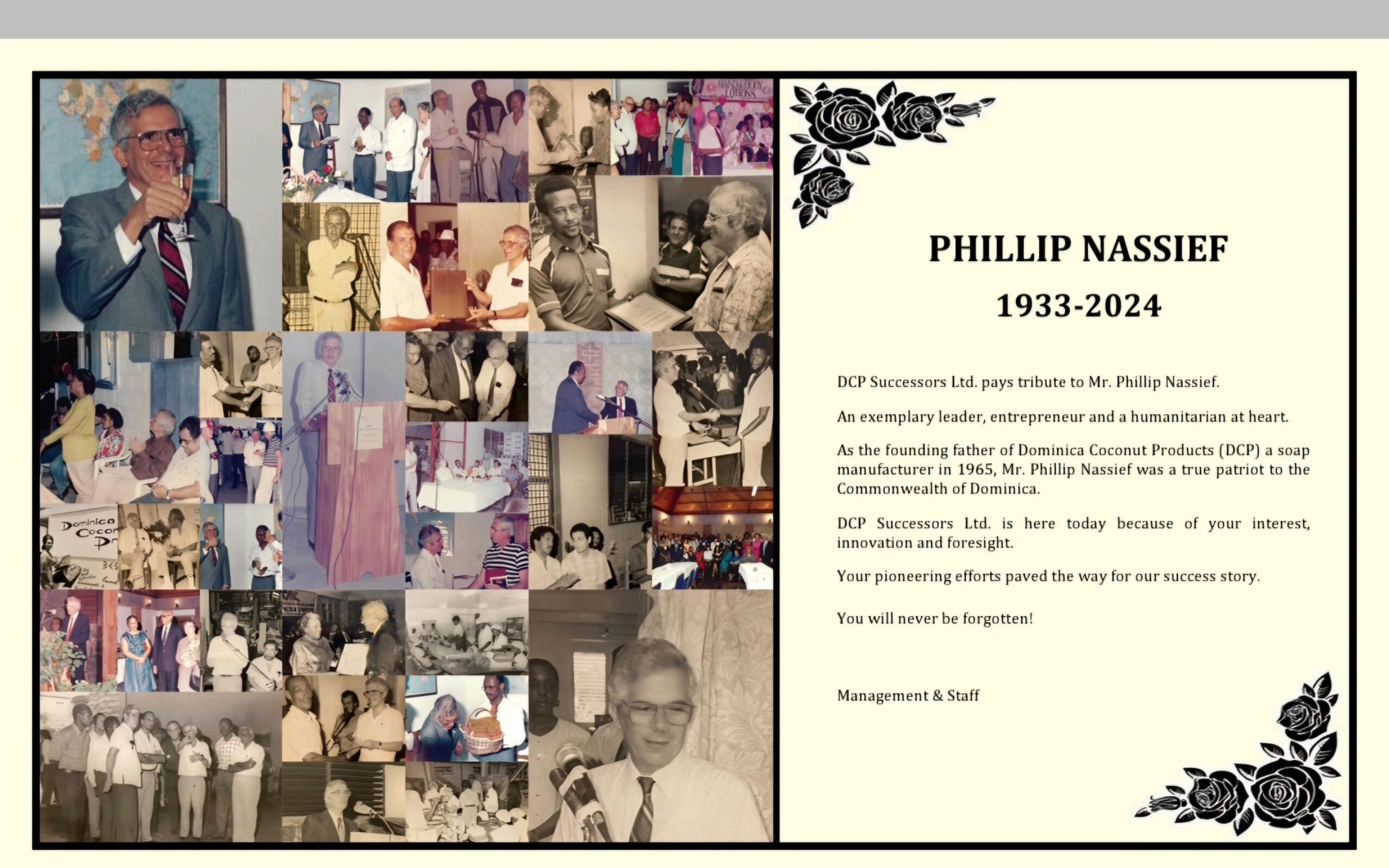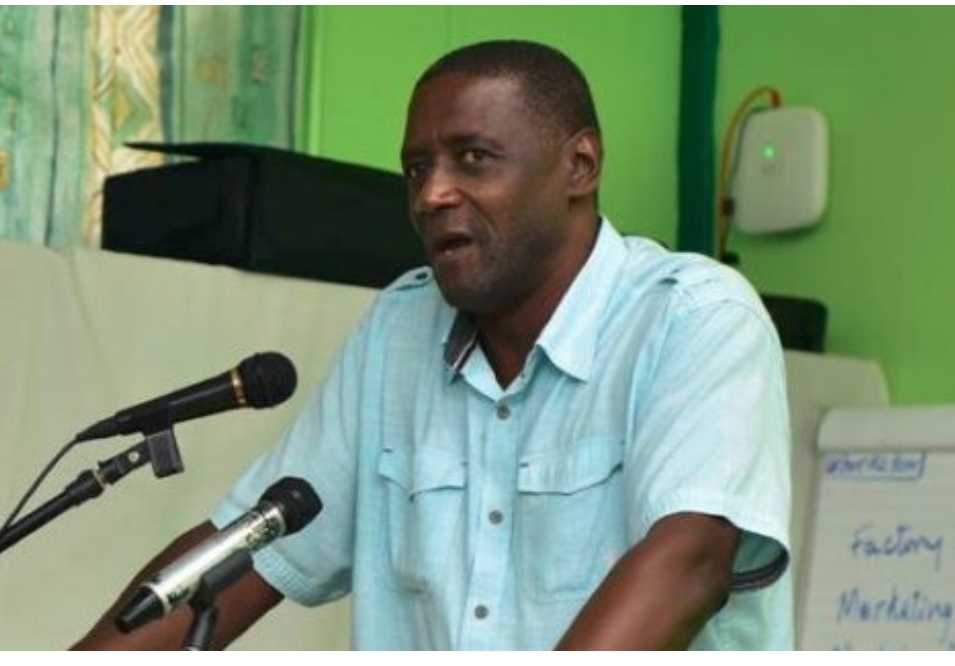
The number of people utilizing free movement provisions to move within the Caribbean is increasing each year. However, the lack of public awareness about how to migrate within the free movement regimes limits the provisions’ impact.
That was the main finding of a recent study presented by the International Organization for Migration (IOM) last Thursday, 13 February 2020. IOM hosted over 50 participants across the region in a web-based panel discussion to examine the results of a recent study on free movement of persons in the Caribbean.
The researchers, Briana Mawby and Estela Aragón from the IOM Regional Office for North America, Central America and the Caribbean, and panelists, Wanya Illes, Senior Technical Officer, Caribbean Community and Dr. Clarence Henry, Programme Officer, Regional Integration Unit, Organization of Eastern Caribbean States (OECS),
identified key findings of the report entitled “Free Movement of Persons in the Caribbean: Economic
and Security Dimensions.
The panelists also spoke about the usefulness of the report in their ongoing work to deepen the provisions of Free Movement in the Caribbean. Download the complete study [English] here: bit.ly/3areeDv
The study was the first of its kind in the Caribbean, examining the economic and security impacts of two regional agreements related to migration, through in-depth interviews conducted in six Caribbean countries. The study and report were completed in response to needs expressed by Caribbean States and were made possible through support provided by the United States Department of State Bureau of
Population, Refugees and Migration under the framework of the IOM Western Hemisphere Capacity Building Migration Program. The work provides an unparalleled analysis of migration trends within the region through the free movement regimes within the CARICOM Single Market and Economy(CSME) and the OECS and seeks to support ongoing regional integration efforts across the Caribbean.
The panelists highlighted key findings of interest from the report, including the historical journey of migration in the Caribbean context, and the comparative analysis provided with other free movement regimes around the world. In particular, Dr. Clarence Henry noted that the OECS is potentially the most advanced region worldwide with regard to the achievement of citizens travelling with their ID cards, having the right to stay indefinitely in other member states without any special documentation or procedure, the right to work without needing a work permit, and providing contingent rights for beneficiary families regardless of their nationality.
The report also revealed that there is a lack of public awareness of citizens on their rights and responsibilities within the regimes. This may be one of the factors contributing to the fact that movement under the skills regime is not taking place in large numbers. Within CARICOM, individuals may apply for a Skills Certificate to allow them indefinite stay in another CARICOM country. However according to Ms. Illes, the impact of free movement in the CSME has been very small, particularly when compared to other methods (such as work permits) and the impact of extra-regional migration.
report shows that less than 20 thousand CARICOM Skills Certificates have been issued in 25 years, and the use of work permits is still far more common in most countries than Skills Certificates. It was also notable that in 2017, 71 percent of Skills Certificates issued were for University Graduates, followed by Holders of Associate Degrees with almost 11 percent. Other factors that may contribute to the slow uptake of the skills regime include uneven implementation at the national level and the cost to employers.
There is a lack of specific data that can be used to drive evidence-based regional and national policies, for instance there is data on travelers but not necessarily on migrants. The CARICOM and OECS representatives on the panel advised participants of progress being made by both organizations to address this challenge of data capture, monitoring and evaluation.
There are, however, concerns about the limited ability to track and vet individuals moving throughout the region, and the report highlights the critical need to improve data collection and development of indicators to better understand the economic impacts of free movement of persons in the Caribbean.
The challenges identified are not new and both CARICOM and the OECS are working on overcoming several of these. Notably the OECS is working on enhancing free movement of persons by strengthening border management systems and procedures, benefits for citizens and workers such as social security portability, and enhancing the ‘OECS identity’ possibly through issuance of an OECS ID. The Commission is also working on enhancing the Free Circulation of Goods regime (FCG) in order to increase the economic benefits across the Easter Caribbean Economic Union (ECEU).
Denials of entry of citizens at regional ports across CARICOM is on the decline and this is a positive trend, potentially indicating that citizens are becoming more aware of their rights and the provisions for free movement of persons. The success of the arrangements under the free movement of persons put in place for the Cricket World Cup was noted as a major achievement, as patrons were able to enter the region and then travel intra-regionally without any harassment. For the OECS region, the regime for freedom of movement to live and to work proved extremely beneficial for citizens in the months immediately following the impact of Hurricane Maria on Dominica and Barbuda, including facilitating persons from other member states being able to boost the labour force to assist in the recovery of the two most affected islands.
Marcelo Pisani, IOM Regional Director for Central America, North America and the Caribbean highlighted the interest of IOM in supporting initiatives for regional integration “The CARICOM and OECS free movement regimes expand the avenues that allow people to move, facilitating greater opportunity to travel, seek employment, access social services, and establish businesses. IOM seeks to support regional integration and collaboration in the region to ensure safe, regular and orderly migration”.
The report, which is available on https://caribbeanmigration.org , will be useful to the organizations in verifying needs, and taking actions to build capacity. Border officials training and exchanges, and national and regional public education efforts are ongoing within CARICOM, and there is discussion also of whether the existing arrangements are the most useful to achieve the goal of facilitating the movement of people. A further study was recommended to understand the experiences of users of these free movement systems.
54 participants including 8 from Dominica, were engaged in the web-based panel discussion, primarily professionals from government departments and ministries with portfolios including Labour, National Security, Immigration, International Business Affairs, Diaspora Relations, Youth and Entrepreneurship, Disaster Preparedness, Foreign Affairs and Education. Representatives from IOM and UNHCR, the University of the West Indies and Columbia University in the USA also participated, as well as the Canadian High Commission in Jamaica and the German Development Agency (GIZ), Germany’s leading provider of international cooperation services, currently engaged in a project to support the OECS also participated. The webinar will be made available on the Caribbean Migration Consultations websitehttps://caribbeanmigration.org .









